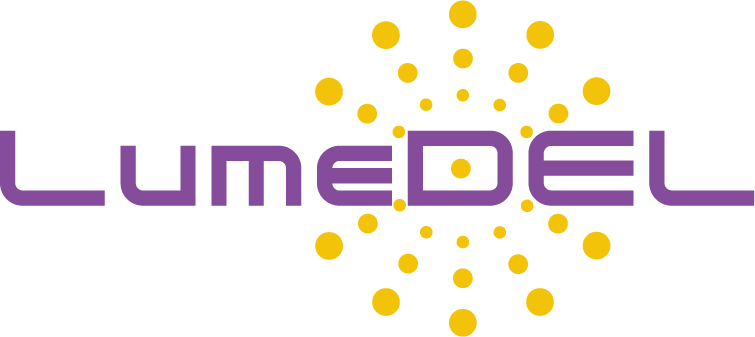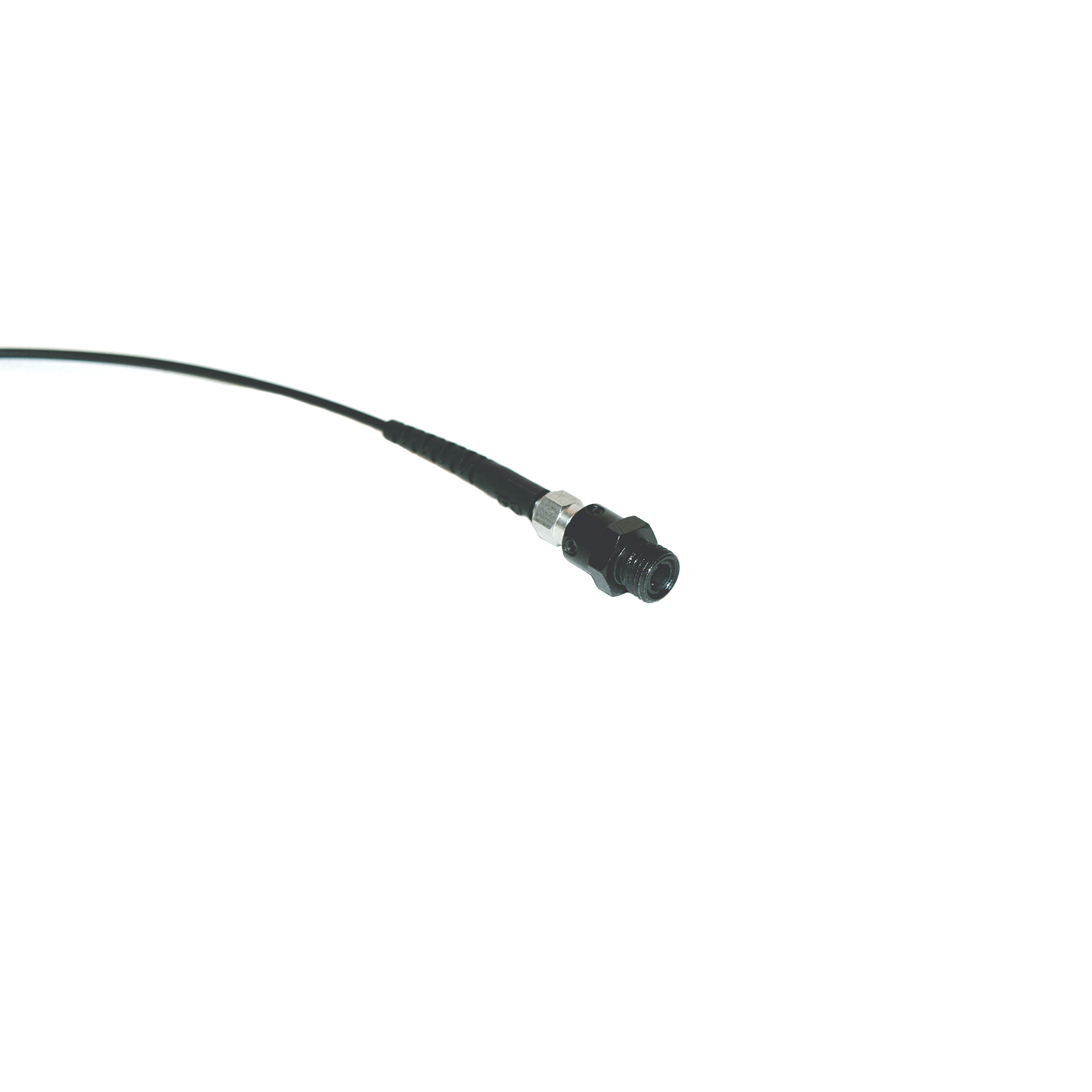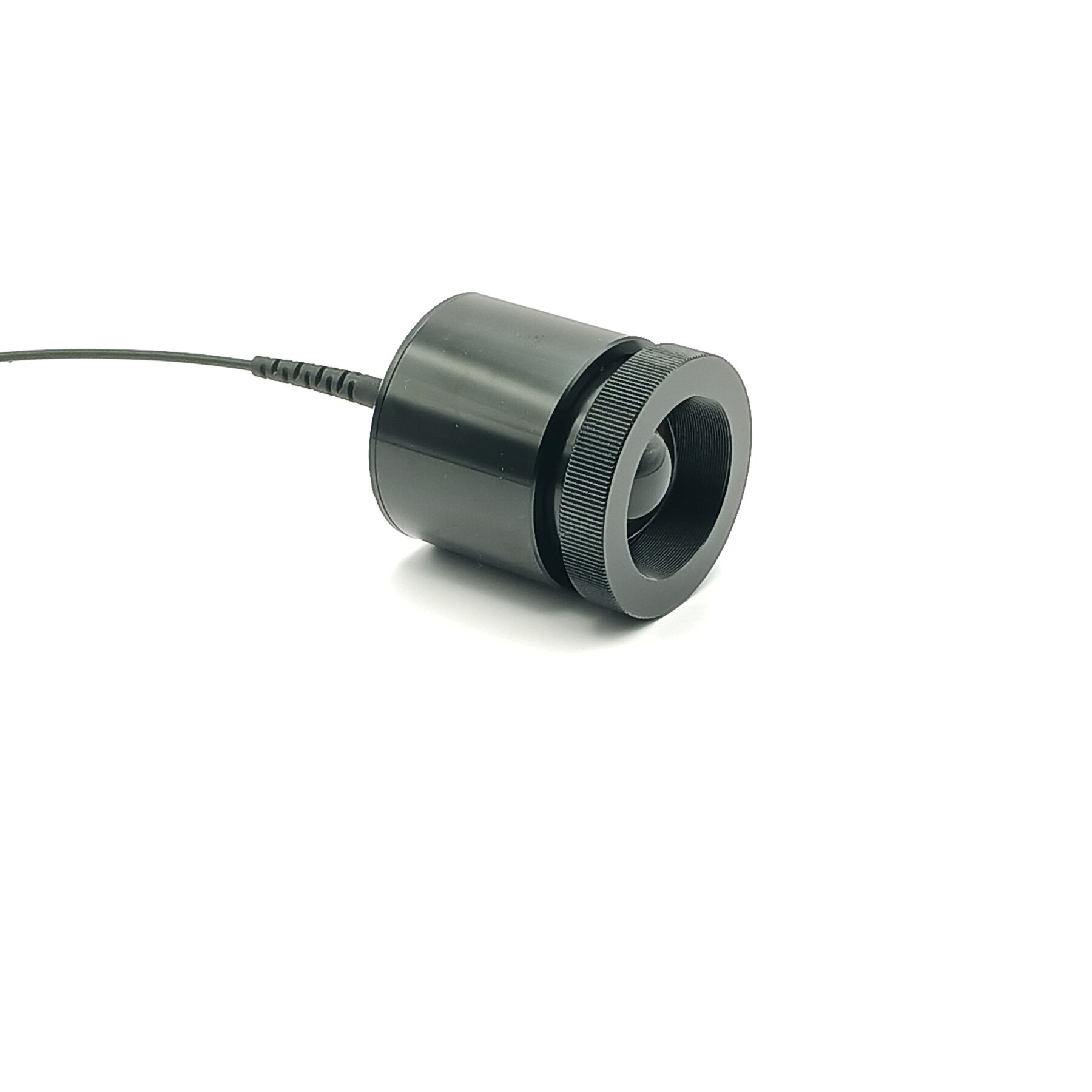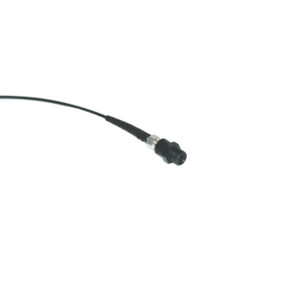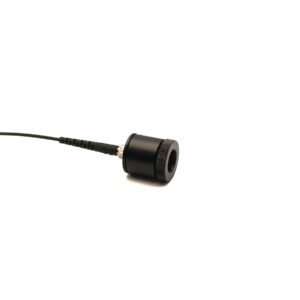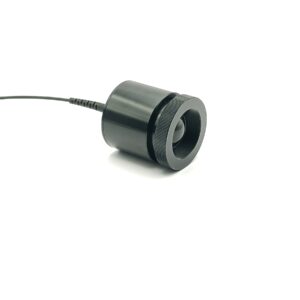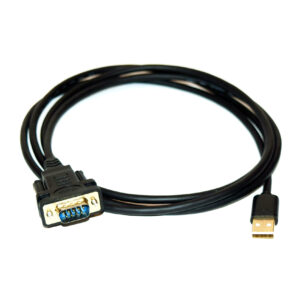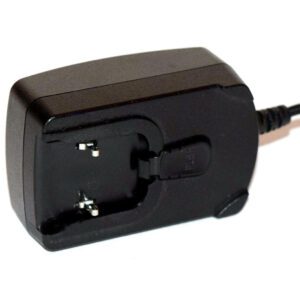Collimating Lenses
If a point source is placed at the front focal point of a positive lens, the beam leaving the lens would be a parallel beam by definition. However, a parallel beam is an ideal concept and does not exist in practice. A point source is only an approximation whereas real sources have some geometric extent. The spherical wave from the point source also undergoes diffraction by the lens. In any case, the exiting beam is now called a collimated beam although not perfect. Hence, the beam leaving the collimator will not be of constant diameter, but slightly expanding. LumeDEL Collimating Lenses use aspherical lenses which are best for high NA fiber collimation.
Collimated beams are very useful in laboratory setups with fiber-coupled LEDs, because the beam diameter remains fairly constant to work with other optical components and avoid excessive beam expansion.
General Purpose Collimating Lenses
Common Specifications
- SMA905 connector
- Uncoated lenses
- Clear aperture 90% of lens diameter
OPTIONS
PART NUMBER

